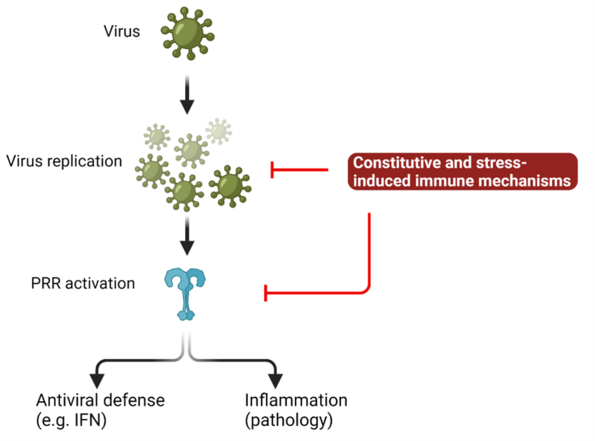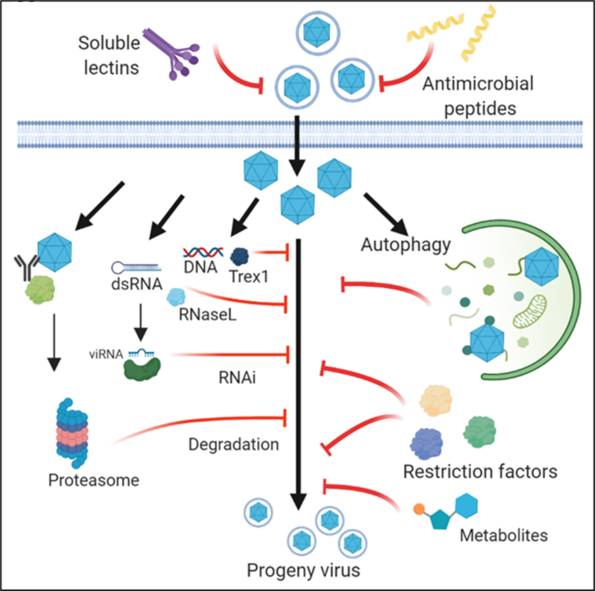Understanding how the immune system fights viruses represents one of the main challenges in modern-day science. At CiViA, we study the first line of defense against viral infections, with the goal of describing hitherto unrecognized layers of the immune system and novel mechanisms mediating anti-viral defense, and we aim to challenge existing paradigms in immunology.
We are testing the hypothesis that cells and tissues are endowed with a set of constitutive and stress-induced immune mechanisms, which restrict viral replication, but also limits activation of inflammatory responses. Such mechanisms could include restriction factors, autophagy, antimicrobial peptides, and proteasomal degradation. We are proposing that, although they function through a broad and heterogeneous set of mechanisms, they collectively function as early barriers to infection and aim to control infection in a manner that minimize disruption of homeostasis. This layer of defense is also crucial to limit premature or aberrant activation of pattern recognition receptors (PRRs) and associated inflammation and immunopathology. Thus, we propose that the first line of defense plays a homeostasis-guarding role, eliminating many infections without inflammation, and limiting the requirement of PRR activation, even once infection is established.


At CiViA, we are trying to answer the following questions:
The research in CiViA thus has the following goals: